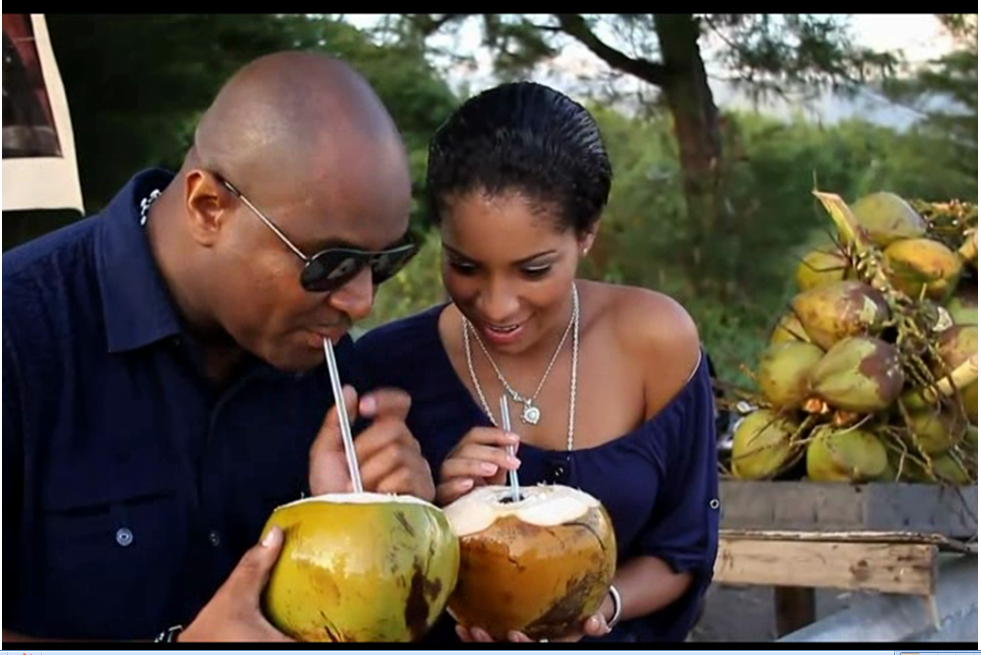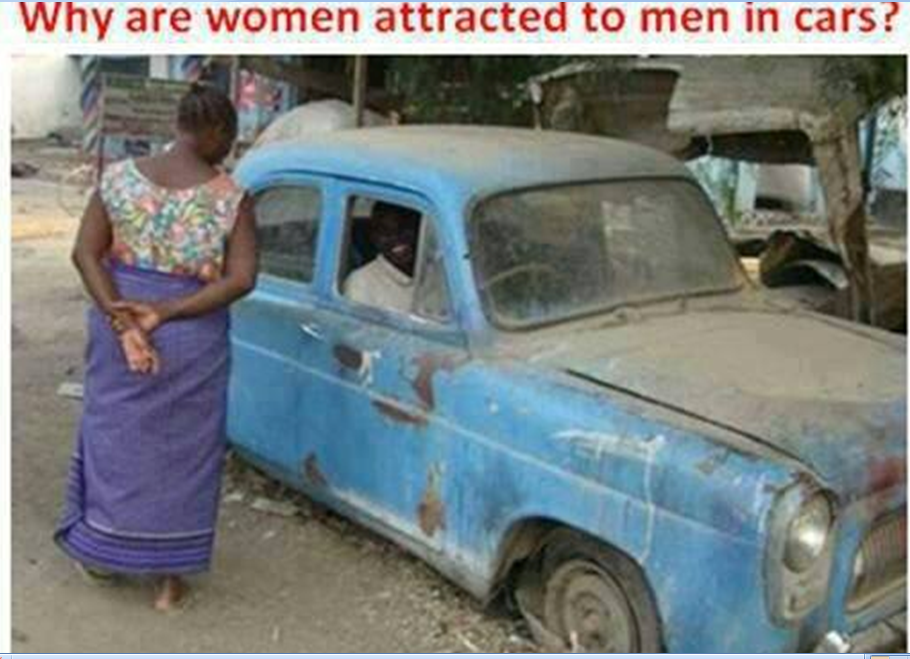Preparation for Marriage and Choice of Partners in African Tradition
Preparations for marriage in African Tradition was a long process earmarked by rituals after birth; one is initiated in order to belong to that society and is continually incorporated through various initiation rites such as naming, teething, circumcision in order for one to become a man or woman.
They undergo various teachings in matters pertaining society and its norms, sex, marriage, procreation and family life so that by the time one marries one is able to sustain it.
Even in societies without initiations; parents, elders, uncles, gradually educate children in marital affairs. And sex roles e.g. boys are taught masculine duties behaviour towards in-laws, acquisition of wealth and how to be responsible head of family.
Girls in the same way are taught famine duties household cores, how to cater for husband, visitors, relatives in the home and sex matters e.g. in West Africa girls were taken to fattening rooms for six months and in Buganda girls were taken to the bush "okukyalira ensiko" and had to pull the labia (okusika enfuli) to be appetising to men in bed.
Among the Akamba of Kenya the youth who are about to marry were taken to some private places and taught marriage, family and sexual issues including sex play positions and to do it practically without penetrating the female organ.
Today university and other formal institutions are ignorant of such preparations and in this respect African tradition is superior in educating children about marriage issues and sometimes interviews were given to ascertain one's capability.
Different societies have different methods of choice making depending on customs as noted below:-
Some parents choose for their children partners before they were born (booking). A family that has a boy goes to another household with an expectation mother to book pregnancy. In case a child born is a boy the booking continues and this was common among the Banyole of eastern Uganda. However, sometimes this arrangement is made when two wives know they are pregnant: they book each other pregnancy.
A part from booking pregnancies a household with the boy booked a young girl in another home; common among the Basoga and Bagisu.
A fairly widespread practice is where parents of a young man approach parents of the girl and start marriage preparations/ negotiations. (Parent choice) often done during initiation period. Nevertheless if either the boy or girls rejects the arrangement is broken though sometimes force is applied but in most cases contracts are made with full consent of the boy and the girl.
In Sebei a chase was organised and if the boy managed to catch up with the girl then he takes her for marriage.
In Karamoja, a boy meets a girl on the way from the well or collecting firewood; wrestles her down, tears her skin, rapes her, and so the boy will have shown his manhood to the girl who just follows and marriage arrangements are made.
In some societies the young people themselves make their choices and afterwards inform parents. E.g. among the Udhuk, a boy finds a girl on the way, suggests, other girls chase him away, at night the girl prepares a bed near the wall, the boy comes at night and through an opening touches her; if she accepts she keeps quiet for two days and later puts on beads, parents inquire and if accepted negotiations begin. However, if she rejects she shouts till parents wake up and the boy runs away and so no marriage but should she continue shouting to every boy she can later be forced to marry any one.
In some societies like the Wolof when a young man meets a girl he intends to marry he informs the father who will send Kola nuts which are shared with family, friends, and neighbours. The formal courtship follows plus gifts to the girl but a man is married and his wife takes up intermediary role.

Sometimes a boy can have interest in a girl and sends a sister or another woman to convince her for him.
In case parents realise that the boy is a coward or the girl has over delayed to marry they would just get for him a woman or man for her by force.
Among the Langi and acholi there was trial marriage where the two stay together to confirm loyalty in marriage where the two stay together to confirm loyalty in marriage.
Sometimes during dances or initiations some girls would just be abducted or carried of by force for marriage.
In some societies girls were given for free to kings or chiefs as gifts.
In warrior tribes, heroes in tribal wars would be given wives as appreciation. For example among the karamojong those who won battles were appreciated by giving them young girls as extra wives.
In case of warning tribes to bring an end to the war girls were exchanged in marriage like it was between Japadhola and Banyole (Banja manyeni).
Sometimes ceremonies were organised e.g. Magila ceremony in Bunyole were used for the girls to be exposed to men and therefore be picked for marriage.
NB. In most cases African marriages are not allowed between relatives and there were taboos prohibiting with threats of sickness, death etc. unfortunately, lepers, epileptics, mentally handicapped are women they often got children out of wedlock.
Courtship is a period or situation of having a relationship that leads to a marriage. This may be brief or long term courtship.
The following aspects should be considered before one gets married:-
The community should be unformed (Aswera akaguza, okwogereza, ohuhobya, aisup, opori).
It should not be an individual affair; there is need for a go- between.
It should be with someone ready for marriage; not at school, disco goes or under age.
There should be love with sometime ready to take it up.
There is need to seek parents consent or inform them of their plan to marry who may accept or not.
There should be ample time to know each other so that one can confirm whether one is able to stay with the other.
The family background is important so that one does not realise when it in too late.
Common interests.

Cultural background e.g. it is alleged that among the Bashiyende in Bugisu they used to eat the first born.
Religious background is important today to avoid misunderstandings.
In some societies, lack of bride wealth can cause separation or arises and therefore unhappiness.
Ones health to avoid misfortunes e.g. the Bagisu undress the girl to prove her health.
Beauty / handsomeness.
Virginity is of great importance to some people.

Figure 5 Height and body size may be a factor to consider among some couples. What do you think about this man?
Brevity e.g. among the Acholis and Karamojong one has to fight with a loin and kill it to prove.
Find out in case of close relationship to avoid incest.
Portability
Size / height
Tribal background
Today academic is looked at.
Advantages of Parents choice of marriage partners.
It is a common experience and that experience is the best teacher; so parents have mature judgment. Because of their age they are like old brooms they know by experience what is good.
They help their children not to make irrational decisions based on lust.
They carefully make inquires from other people not to make mistakes for their children.
It helps to avoid incest and in so doing the couple can have full protection and parents can always come in to advise.
Family links were strengthened because parents on both sides took initiative in making the relationship calling each other "Munenwa," 'Masakwa,' 'Akamurdau.'
Parents could contribute to the bride wealth which was required in marriage.
Character traits could be traced to avoid later frustrations.
Conflicts between families could be avoided since they lived like family friends.
Respect of parents on both sides was assured. Blessings from elders were assured.
Bride wealth could easily be refunded in case of divorce or even if the boy was to marry another woman.
In case of death of husband a heir would easily be chosen or if the wife died a replacement would quickly be organised.

Disadvantages of parents' choice
It prevents one to make a choice of ones interest.
It led to forced marriage
Marriage is not built on love and can end up being unstable.
Divorce is likely to occur due to lack of interest in the other.
Loyalty is given to the in -laws than one's partner.
Conflicts between parents may penetrate through couples due to influence.
Unnecessary demands of in-laws e.g. among the Bakiga one must have sex with in laws first (also common inAnkole).
Lack of independence among the couples (Over independent on parents.
In case of families where one is married further family e.g. in Ankole, Busoga diseases can easily be spread.
Advantages of individual choice of marriage partner
Marriage is always founded on love and no need for regrets or blame put on anybody else.
One has an independent decision making i.e. the future of such a marriage is well looked into.
Marriage partners are able to solve their own problems amicably without involving the parents.
The type of marriage to be contracted is decided by both partners themselves.
Cultural beliefs like among the Bahima / Banyankole who have to test the girl sexually to see where his dowry went or where among the Banyarwanda the mother in law must test the boy/ son in law are avoided.
Since this marriage is based on love, faithfulness is more ensured.
It gives room for one to marry or not since there is no force.
There is greater compatibility / oneness and there is more trust.
There is more joy and fulfilment in marriage where each of the couple depends on the other.
There are less chances of divorce and therefore more chances of permanence.
Certain diseases are avoided in case thorough check up is carried out before marriage takes place.
There is more assurance of monogamy.
Unwarranted behaviour can be avoided.
Before people enter marriage issues that would bring misunderstandings can be solved first.
There is better planning and administration of finances.
Disadvantages of individual choice
Many mistakes are likely to be made leading to poor choice that one may live to regret.
There is a possibility of incestuous marriage where one may marry a relative unknowingly.

Figure 6: Some young men or girls and can be deceived especially on facebook and may end up in a terribly dangerous marriage characterised by cannibalism and other forms of horror
Most times couples don't take enough time to research since some are picked from dances, bus and by the time one discovers some weaknesses it is too late.
Higher chances of divorce since no consultations are made and when love fades away separation follows.
There is likelihood of inadequate preparation and the Senga / uncle may not have chance to advise.
Young people put much emphasis on beauty than personal characters and background (Prov.11: 28, Pet 3:1).
One is likely to marry someone with chronic diseases.
Such marriages one usually through elopement which is against Christian teaching.
Blessings are not received from parents.
Fornication is likely to take place and sometimes after the girl is impregnated the boy may deny heir.
There is likelihood of trial marriage where a girl is taken for a period of time and later dropped; this is common among the Langis.